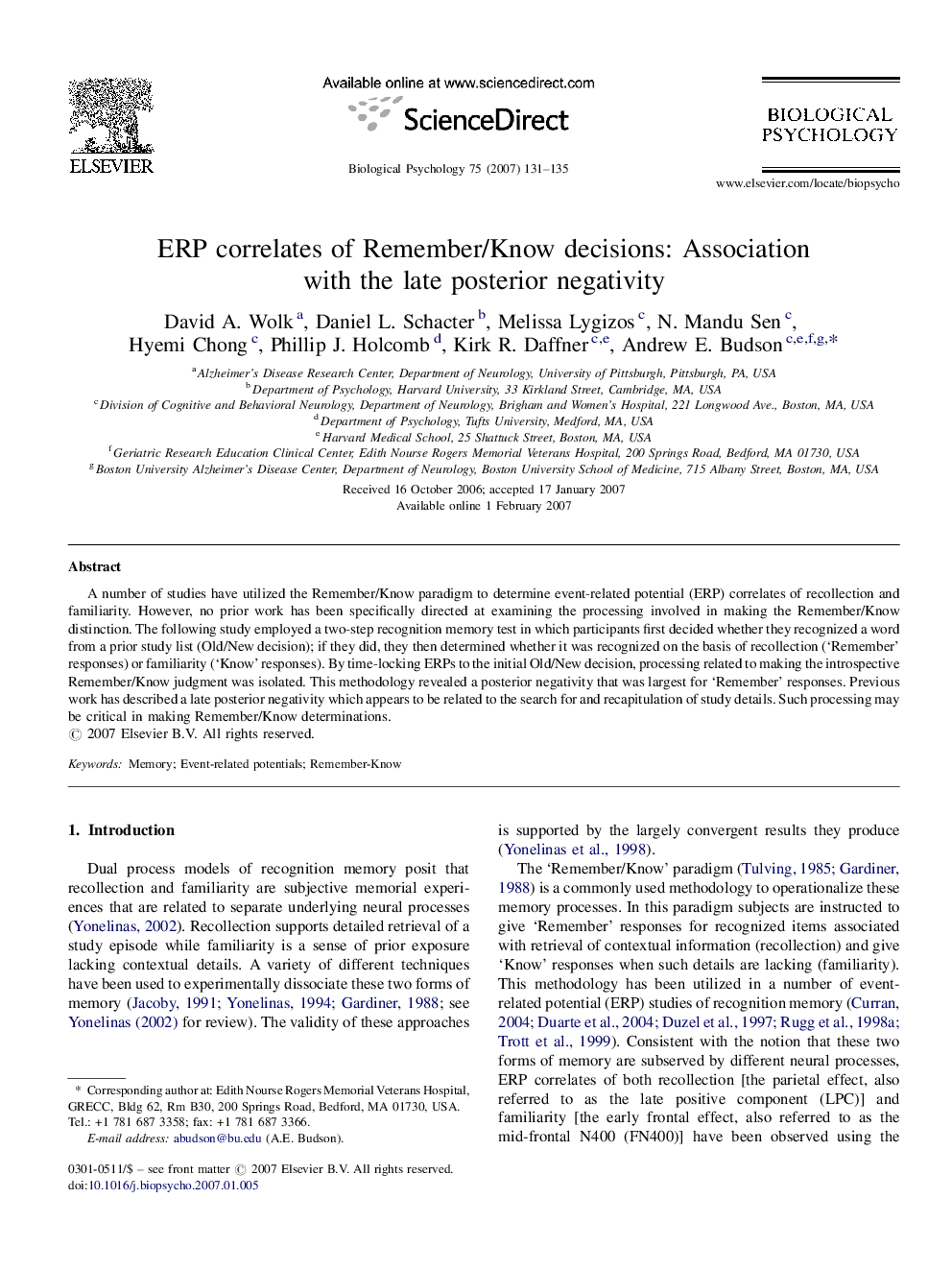| Article ID | Journal | Published Year | Pages | File Type |
|---|---|---|---|---|
| 921563 | Biological Psychology | 2007 | 5 Pages |
A number of studies have utilized the Remember/Know paradigm to determine event-related potential (ERP) correlates of recollection and familiarity. However, no prior work has been specifically directed at examining the processing involved in making the Remember/Know distinction. The following study employed a two-step recognition memory test in which participants first decided whether they recognized a word from a prior study list (Old/New decision); if they did, they then determined whether it was recognized on the basis of recollection (‘Remember’ responses) or familiarity (‘Know’ responses). By time-locking ERPs to the initial Old/New decision, processing related to making the introspective Remember/Know judgment was isolated. This methodology revealed a posterior negativity that was largest for ‘Remember’ responses. Previous work has described a late posterior negativity which appears to be related to the search for and recapitulation of study details. Such processing may be critical in making Remember/Know determinations.
